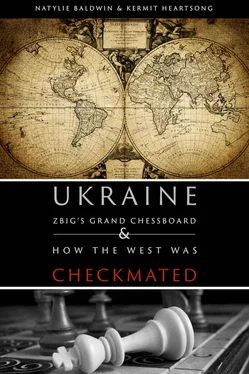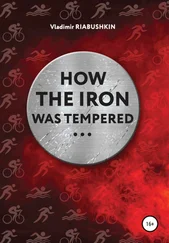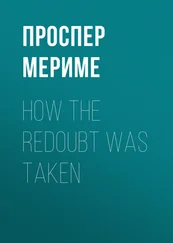Kermit Heartsong - Ukraine - ZBIG's Grand Chess Board & How The West Was Checkmated
Здесь есть возможность читать онлайн «Kermit Heartsong - Ukraine - ZBIG's Grand Chess Board & How The West Was Checkmated» весь текст электронной книги совершенно бесплатно (целиком полную версию без сокращений). В некоторых случаях можно слушать аудио, скачать через торрент в формате fb2 и присутствует краткое содержание. Год выпуска: 2015, Жанр: Политика, на английском языке. Описание произведения, (предисловие) а так же отзывы посетителей доступны на портале библиотеки ЛибКат.
- Название:Ukraine: ZBIG's Grand Chess Board & How The West Was Checkmated
- Автор:
- Жанр:
- Год:2015
- ISBN:нет данных
- Рейтинг книги:4 / 5. Голосов: 1
-
Избранное:Добавить в избранное
- Отзывы:
-
Ваша оценка:
- 80
- 1
- 2
- 3
- 4
- 5
Ukraine: ZBIG's Grand Chess Board & How The West Was Checkmated: краткое содержание, описание и аннотация
Предлагаем к чтению аннотацию, описание, краткое содержание или предисловие (зависит от того, что написал сам автор книги «Ukraine: ZBIG's Grand Chess Board & How The West Was Checkmated»). Если вы не нашли необходимую информацию о книге — напишите в комментариях, мы постараемся отыскать её.
Ukraine: ZBIG's Grand Chess Board & How The West Was Checkmated — читать онлайн бесплатно полную книгу (весь текст) целиком
Ниже представлен текст книги, разбитый по страницам. Система сохранения места последней прочитанной страницы, позволяет с удобством читать онлайн бесплатно книгу «Ukraine: ZBIG's Grand Chess Board & How The West Was Checkmated», без необходимости каждый раз заново искать на чём Вы остановились. Поставьте закладку, и сможете в любой момент перейти на страницу, на которой закончили чтение.
Интервал:
Закладка:
Gorbachev’s Economic Vision
As Naomi Klein chronicles in her book, The Shock Doctrine: The Rise of Disaster Capitalism , after overseeing a remarkable period of democratization that included the emergence of a free press, a parliament, an independent constitutional court, and the establishment of local councils and elections, Gorbachev’s desire — to be implemented over a period of ten to fifteen years — was to create a mixed economy, similar to the Scandinavian social democracies, consisting of free markets balanced with robust social programs, including public control of certain essential industries.
But Gorbachev, recognized by the West to be in a weak position and in need of economic aid and guidance, received a very unsettling message from the leaders of the G7 nations when he attended their annual summit in 1991. They wanted Gorbachev to apply a “shock therapy” economic program like Poland had just undergone, only in an even more extreme form: on a shorter time frame and without any debt relief (Klein 2007).
To reinforce the message and ratchet up the pressure to accept such a proposal, the IMF — at the behest of the US Treasury Department — demanded harsh austerity measures in exchange for loans, followed by the World Bank making similar demands (Klein 2007; Engdahl 2014).
Gorbachev knew that such a program would never be accepted by the Russian people. As post-Soviet polls indicated, 67 percent of Russians favored worker co-ops as the best way to facilitate privatization and 79 percent believed the government should play an active role in promoting full employment (Klein 2007). Consequently, Gorbachev faced a choice between the political democracy he had fought so hard to achieve and economic dictatorship. Mainstream media in the West at the time, such as The Economist and the Washington Post , openly encouraged Gorbachev to adopt an authoritarian stance to implement what they deemed the necessary policies for creating their definition of a liberal market economy. In fact, they suggested that Russia exercise the “Pinochet Option”—a reference to the brutal Western-backed dictator who had overthrown the democratically elected Socialist president of Chile, Salvador Allende, in 1973—if Gorbachev proved to be too squeamish to go along with the program (Klein 2007).
The Chicago School economic advisors in the US, who followed Milton Friedman’s scorched earth philosophy of Neoliberal economics that worshipped a mythical market that was unmoored from the needs of humanity, found their Russian Pinochet personified by Boris Yeltsin. Yeltsin, president of the republic of Russia, had gained popular support later in 1991 by climbing in protest atop one of the tanks driven threateningly up to the steps of the Parliament building by a contingent of disaffected Communist officials. He rode that wave of popularity all the way to a power grab when he formed an alliance with the leaders of two other Soviet republics and forced the dissolution of the Soviet Union, thereby rendering Gorbachev — who was trying to keep the Soviet Union together — powerless (Klein 2007; Cohen 2011).
Yeltsin: The Russian Pinochet
Yeltsin wasted no time in appointing the Chicago School advisors from the US, including Jeffrey Sachs, to comprise his economic team (Klein 2007). Yeltsin, with the help of these advisors, was looking for a quick infusion of cash like that promised by the G7, IMF, and World Bank. Of course, the strings attached were well understood at that point. In order to pull this off without facing a backlash from the Russian populace, Yeltsin went to the Parliament with an outrageous proposal: to be granted permission to circumvent Parliament and rule by decree for one year on the pretext of solving the nation’s economic mess. In recognition of the fact that they were desperate for aid, Parliament agreed.
In the year that followed, Parliament would come to regret their decision. After placing an authoritarian named Yury Skokov in charge of the military and security departments to control potential dissent, Yeltsin embarked at break-neck speed on a plan of lifting price controls on food, cuts to various subsidies and other policies that resulted in an inflation rate of 2,500 percent at its height. With the ruble having lost its value, the life savings of millions disappeared and workers went months with no pay. Many people were forced to sell their belongings on the sidewalk, farms were abandoned as farmers were forced to seek recompense elsewhere, food distribution networks collapsed, store shelves were empty, and the search for food often became the top priority as people spent hours in lines to obtain food imported from the outside (Klein 2007; Wedel 1997; Tennison 2012).
During the first few years of this “shock therapy” program, Russia faced its greatest mortality crisis since WWII as many middle-aged men drank themselves to death or met an early demise from other health problems related to neglect as well as suicide and homicide. All the sacrifices endured to emerge victorious in The Great Patriotic War, combined with re-building the Soviet Union, had suddenly come to nothing. The sense of being needed, particularly strong in Russian and Soviet culture, had evaporated for many of the men in this demographic whose identity and sense of being needed was rooted in their role as economic providers as well as guardians and beneficiaries of a steadily improving “radiant future” under the Soviet state. Between 1993 and 1994 alone, around one million Russians died prematurely (Parsons 2014).
A Mafia-style criminal element also emerged from the ruins made up of disenfranchised police officers, KGB officials, and black market operatives who soon formed protection rackets targeting the small to mid-sized businesses that had started. The protection money that had to be paid, which increased any time production went up, stunted the new entrepreneurial class (Tennison 2012).
By November of 1992, Anatoly Chubais had been appointed as Yeltsin’s economic czar. He began working with the Harvard Institute for International Development (HIID), which was funded by USAID and now headed by Jeffrey Sachs. One of HIIDS’s cheerleaders in the Clinton administration was Lawrence Summers at Treasury. The HIID team and its enablers included former World Bank consultant Jonathan Hay who had previously served as a senior legal advisor to the Russian state's privatization committee (GKI) and would now be serving as HIID's general director in Moscow (Wedel 1997).
In late 1991 and early 1992, the Chubais economic team concentrated the accumulation of property into a few well-connected hands in contravention of a privatization program previously passed in the country to prevent corruption. One of their projects was a voucher privatization program paid for with $325 million in US taxpayer money. It is reported that hundreds of investment funds simply resold the vouchers to domestic criminals, Western investment banks, and global money launderers. These schemes were the impetus for Yeltsin's rule-by-decree. Many of the decrees were written by Hay and his cronies (Wedel 1997; Williamson 1999).
When the year was up in March 1993, with popular support, Parliament attempted to rein in Yeltsin’s abuses by repealing the decree powers they had granted him. In response, Yeltsin declared a state of emergency; however, the constitutional court ruled that Yeltsin’s abuse of power violated the constitution on eight counts. A short time later, Parliament passed a budget that would put the brakes on the austerity measures demanded by the IMF. Yeltsin, with the support of Washington — particularly, Lawrence Summers at the Treasury Department, who put additional pressure on the IMF to rescind a major loan to Russia at a strategic moment — issued a decree dissolving Parliament and abolishing the constitution. Parliamentarians then called a special session and voted to impeach Yeltsin (Klein 2007).
Читать дальшеИнтервал:
Закладка:
Похожие книги на «Ukraine: ZBIG's Grand Chess Board & How The West Was Checkmated»
Представляем Вашему вниманию похожие книги на «Ukraine: ZBIG's Grand Chess Board & How The West Was Checkmated» списком для выбора. Мы отобрали схожую по названию и смыслу литературу в надежде предоставить читателям больше вариантов отыскать новые, интересные, ещё непрочитанные произведения.
Обсуждение, отзывы о книге «Ukraine: ZBIG's Grand Chess Board & How The West Was Checkmated» и просто собственные мнения читателей. Оставьте ваши комментарии, напишите, что Вы думаете о произведении, его смысле или главных героях. Укажите что конкретно понравилось, а что нет, и почему Вы так считаете.











